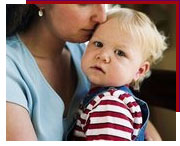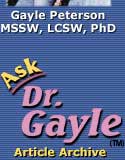 |
||||||||

Quiz: Test your toddler know-how
 You may have had some, a little or a lot of involvements with toddlers before you have one of your own. Nevertheless, it may have been a very long time since you were actively involved with a toddler. What do you remember about this period of development? The quiz below will help you remember what you may have forgotten about the milestones of this stage, or and learn something new!
You may have had some, a little or a lot of involvements with toddlers before you have one of your own. Nevertheless, it may have been a very long time since you were actively involved with a toddler. What do you remember about this period of development? The quiz below will help you remember what you may have forgotten about the milestones of this stage, or and learn something new!Answer these questions, and compare your answers to the correct answers at the end of the quiz.
1. This age range ushers in conflict between independence and dependence. Children are more likely to have tantrums related to “I want to do it myself!”
a) between ages of 2- 3 years
b) 18 months to 2 years
c) anywhere between 1-3 years, depending on the child
2) Children of this age can whisper and walk on tip toes:
a) 15 months
b) 2 years
c) 2 1/2-3 years
3. Most toddlers take their first step:
a) between 11 and 14 months
b) between 8 months and 12 months
c) between 14 months and 18 months
4. By the age of two, a child’s verbal vocabulary is on average:
a) 10 words or less
b) between 50-75 words
c) at least 100 words
5. By the age of two, a child usually understands:
a. 60 words
b) 200 words
c) 600 words
6. Separation anxiety peaks:
a) between 18 months and 2 1/2 years, and toddlers usually outgrow it by 3 years
b) between 12 months and 18 months, and outgrow it by 2 years
c) when they begin to walk, and usually outgrow it when they begin to talk
7. Taking turns is a concept:
a) a 3 year old can understand
b) a two year old can understand
c) an 18 month old can understand
8. You can expect your 16 month old to:
a) turn pages of a book
b) whisper
c) jump
9. Your child can use a spoon and fork by:
a) 19 months
b) 12 months
c) 2 years
10. Your child can enjoy helping around the house and walk up steps at:
a) 25 months
b) 21 months
c) 2 1/2 years
11. Your child can play peek-a-boo and drink from a cup:
a) by 13 months
b) by 18 months
c) as soon as he can walk
12. Three signs of readiness for potty training are:
a) your child can follow simple directions
b) recognizes the physical signs preceding a bowel movement or need to urinate
c) likes to play with a roll of toilet paper
d) dislikes the feeling of being in a dirty diaper
e) has irregular bowel movements
f) a, b and c
g) a, b and d
 |
ANSWERS:
| 1. B | 5. B | 9. A |
| 2. C | 6. A | 10. B |
| 3. A | 7. A | 11. A |
| 4. B | 8. A | 12. G |
9-12 correct
You did great! Congratulations. You must remember more than you thought! Your expectations for your child’s development will likely be right on target.
7-8 correct
You were on track for some things, but check out the ones you missed to learn more about what to expect and what kinds of things you can do with your child at different stages of development
Under 7
Well, it’s time to brush up on the toddler stages, so you can enjoy your child, and be on target with your expectations of what you can do to enjoy and encourage your child’s development at different stages. Review the answers you missed (and soon!) before these stages are past and gone.
Home • About Dr. Gayle • Counseling • Speaking • Seminars • Articles • Books • Contact
Copyright © 1996-2005 Dr. Gayle Peterson. All rights reserved.

